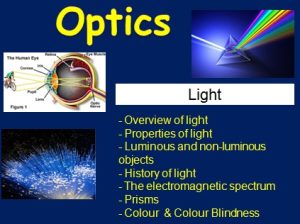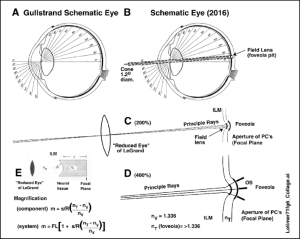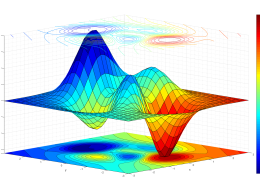What is Physics of Optics?
Physics of Optics is the study of light and its interaction with matter. It encompasses various phenomena such as reflection, refraction, diffraction, and polarization.
Why Study Physics of Optics?
Studying Physics of Optics unveils the mysteries of light, enabling advancements in technology, medicine, and science. It helps us comprehend natural phenomena like rainbows, mirages, and the formation of images by lenses.
Basics Physics of Optics

Light: The Foundation
Light is a form of electromagnetic radiation that travels in waves. It behaves both as a wave and a particle, a concept known as wave-particle duality. Reflection occurs when light bounces off a surface, obeying the laws of reflection. Refraction, on the other hand, is the bending of light as it passes from one medium to another, following Snell’s Law. Optical instruments utilize the principles Physics of Optics to manipulate light for various purposes. Examples include microscopes, telescopes, and cameras.
Fostering Innovation Through Interdisciplinary Collaboration
The fusion of science and creativity lies at the heart of innovation in Physics of Optics. By fostering interdisciplinary collaboration between scientists, engineers, and artists, we can unlock new frontiers and push the boundaries of human knowledge and creativity.
In the field of photonics, for example, researchers are exploring innovative applications of light-based technologies, ranging from ultrafast laser systems for materials processing to advanced optical sensors for environmental monitoring. By combining expertise from diverse disciplines, we can harness the full Physics of Optics to address pressing global challenges and improve quality of life.
Principles Physics of Optics
Physics of Optics operates under fundamental laws such as Fermat’s Principle of Least Time, which states that light follows the path that takes the least time to travel. Nature showcases optical phenomena like rainbows, sunset colors, and the iridescence of butterfly wings, all governed by the principles of optics.
Applications Physics of Optics
Physics of Optics plays a vital role in everyday technologies like eyeglasses, lasers, and fiber optics for high-speed internet. In advanced fields like quantum computing and photonics, optics enables groundbreaking innovations with applications in cryptography, data transmission, and more.
The Physics of Optics: Understanding the Fundamentals
Wave-Particle Duality
One of the fundamental concepts in optics is wave-particle duality, which suggests that light behaves both as a wave and a particle, challenging classical notions of physics.
Quantum Optics
Quantum optics delves into the interaction between light and matter at the quantum level, paving the way for technologies like quantum cryptography and quantum computing. Optics encompasses a myriad of phenomena such as interference, diffraction, and polarization, each offering insights into the nature of light and its interactions.
Science of Optics and the Human Experience

Science of Optics shapes our perception of the world and enriches the human experience in profound ways. From the awe-inspiring beauty of a rainbow to the intricate patterns of a kaleidoscope, light captivates our imagination and invites us to explore the wonders of the universe.
Beyond its aesthetic appeal, optics plays a crucial role in enhancing communication, entertainment, and education. Through the development of optical technologies such as virtual reality and augmented reality, we can create immersive experiences that transport us to new realms of creativity and innovation.
Light, the cornerstone of Optics encompasses a spectrum of wavelengths, each revealing unique insights into the nature of our surroundings. Whether it’s the refraction of light in a raindrop forming a rainbow or the dispersion of starlight revealing the composition of distant galaxies, eyesight allows us to unravel the mysteries of the universe.
Conclusion
Understanding the fundamentals of optics is pivotal in unraveling the mysteries of light and its applications across various disciplines. From everyday technologies to cutting-edge innovations, optics continues to shape our world in profound ways.
____________________________________________________________
FAQs
What is Optics?
Optics is the branch of physics that studies the behavior and properties of light.
How does Optics impact daily life?
Optics impacts daily life through various technologies like cameras, eyeglasses, and fiber optics for internet communication.
What are some advanced applications of Optics?
Advanced applications include quantum cryptography, laser technology, and photonics for data transmission.
Is Optics a fundamental science?
Yes, optics is a fundamental branch of physics that elucidates the nature of light and its interactions with matter.
How does Optics relate to physics?
Optics is a subfield of physics that explores the behavior of light, contributing to our understanding of electromagnetic radiation.
Can Optics be applied in medicine?
Yes, optics finds applications in medicine, such as in the development of medical imaging techniques like MRI and optical coherence tomography.










